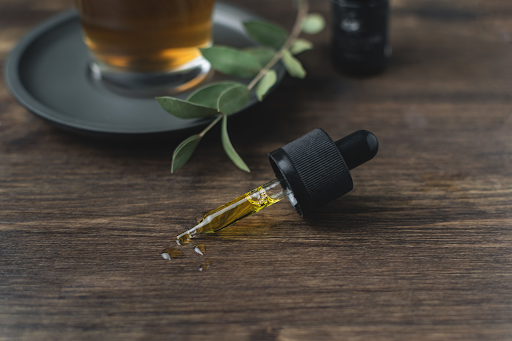
The use of cannabis-derived products in healthcare and medicine has gained momentum thanks to the efforts of advocates. These include medical cannabis patients who have shared their stories of pain relief, recreational users who have debunked myths about the dangers of cannabis, industry professionals who have lobbied for legalization, and medical professionals who have joined education and research efforts.
Dr. Dung Trinh, MD, became particularly concerned when he noticed many of his patients using CBD tinctures and topicals without considering proper dosing or monitoring the effects of their products. He also realized that many physicians stigmatized cannabis just as he used to.
To promote the importance of more cannabis medical research, educating patients on the risks and benefits of cannabis-derived products, and collaborating with organizations with similar values, he founded the Physicians Cannabinoid Council(PCC) alongside Helene Blanchette, the PCC's president.
Education and research
The PCC's dedication to efficacy study, education, and consumer safety has led to improved evaluations of cannabinoids' therapeutic properties and their use in safe, effective treatment. Reports indicate that cannabinoids extracted from the hemp plant — excluding THC — may promote significant pain reduction in adults with chronic pain, while short-term use of oral cannabinoids has shown promising results in improving symptoms related to multiple sclerosis (MS)-related spasticity.
However, for many of these conditions, the information currently available is insufficient to properly assess the positive impact cannabinoids can provide. Nevertheless, the National Institute of Health (NIH) explains that the cannabis plant "may be helpful in treating certain rare forms of epilepsy, nausea and vomiting associated with cancer chemotherapy, and loss of appetite and weight loss associated with HIV/AIDS," as well as glaucoma, MS, and chronic pain.
Along with educating healthcare providers, the PCC aims to educate the public on the risks and health benefits of cannabis-based products through current data and collaboration with like-minded organizations. With over 10,000 companies now offering over 60,000 cannabis-derived products, many have made unsupported medical claims about their products being "clean" or "pure."
"This is not only illegal," Blanchette says, "but also dangerous for consumers. After many of these products are analyzed, nearly 30% are found to contain harmful pesticides, heavy metals, or banned substances." Some have also been found to mislabel the concentration of CBD they contain, while others have been found to contain no CBD at all. "This misleads consumers who may opt for unproven and potentially harmful CBD products instead of effective therapeutic treatment," Blanchette adds.
Spearheading regulation with the Physicians Quality Verified Seal program
To address the slow pace of regulation as well as the misinformation and QA issues this has caused in the still-emerging hemp industry the PCC has established a certification known as the Physicians Quality Verified program to promote trustworthy and effective CBD products in a highly-saturated market.
Through this program, the PCC can better help consumers identify products that have been evaluated following a high standard and incorruptible process. After passing this certification successfully, products can be labeled with the Physicians Quality Verified Seal and consumers can find the list on the PCC's website. The PCC also conducts product efficacy studies and collaborates with universities conducting cannabis-related research.
Considering 70% of consumers said they would choose CBD products from trusted brands based on referrals, price, or packaging, educating them on product safety is crucial. But understanding the interactions between CBD products and other medications is just as important.
"In an unregulated market, education is vital," says Blanchette, "and consumers need to be aware of fraudulent or hazardous ingredients in the current market." The efforts of the PCC have helped erode some stigmas and stereotypes associated with cannabis use, cultivation, and sales, leading to an increasing number of states legalizing cannabis for medical and recreational use.









